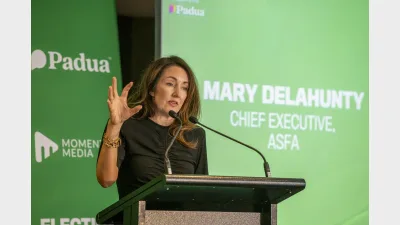CareSuper and Asset merger set in stone


The CareSuper and Asset Super merger date has been set and due diligence completed, with the chairmen of both boards signing a binding agreement to merge the two funds.
Asset chairman David Michaelis and CareSuper chairman Sandy Grant signed the agreement that will merge the funds on 27 October after deciding it would be in the best interests of the members of both funds.
CareSuper chief executive Julie Lander said Stronger Super and cost efficiencies played a role in the decision.
"The estimated cost savings from merging are more than 15 per cent per year just on business as usual activities.
"Looking ahead, further savings will be achieved, with only one fund (rather than two) undertaking the significant amount of work needed to meet the new Stronger Super requirements," she said.
Lander will continue on as chief executive of the newly merged fund, while four Asset trustee directors will join the board.
Asset Super members will transfer to successor fund Care Super's platform, which would take two weeks to complete, according to Asset Super chief executive John Paul.
MetLife will continue to provide cover for Asset members until midnight on 26 October when CommInsure would take over.
Paul said Asset members would have access to increased levels of cover and receive the same or more insurance cover per dollar of premium under the new arrangements.
He said members would also have access to additional investment options, including direct investment products.
Insurance was the major hurdle in preparing to merge as the funds share the same administrator (Australian Administration Services) and custodian (National Custodian Services), according to Paul.
Recommended for you
Aware Super has made a $1.6 billion investment in a 99-hectare industrial precinct in Melbourne’s North which, the fund clarified, also houses the nation’s first privately funded open-access intermodal freight terminal.
ASFA has affirmed its commitment to safeguarding Australia’s retirement savings as cyber activity becomes an increasing challenge for the financial services sector.
The shadow treasurer is not happy with the performance of some within the super sector, telling an event in Sydney on Thursday that some funds are obsessed with funds under management, above all else.
As the Australian financial landscape faces increasing scrutiny from regulators, superannuation fund leaders are doubling down on their support for private markets, arguing these investments are not just necessary but critical for long-term financial stability.













